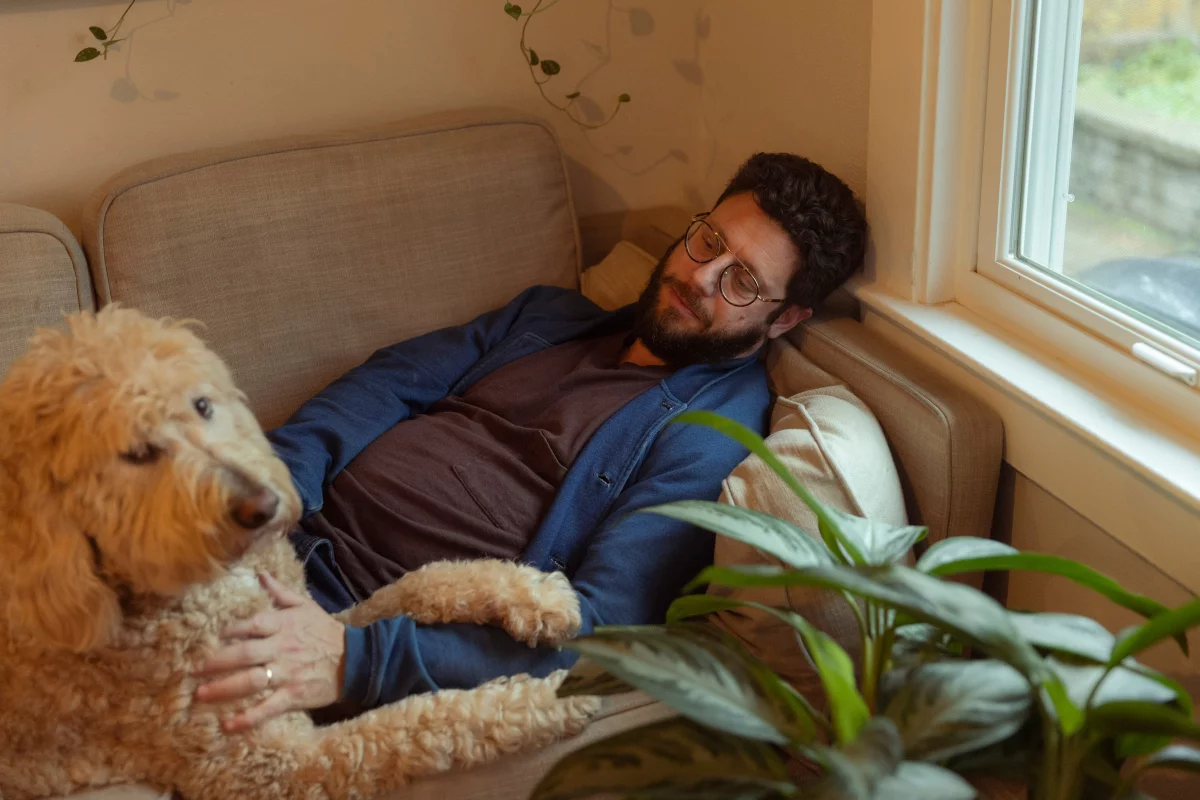It’s been more than seven years, so Benjamin Stein-Lobovits is now able to crack dad jokes about the inoperable brain cancer diagnosis he received, just before his 32nd birthday.
“I like to say that I turned 30-tumor,” he says.
Ba-dum-tssh.
But, at the time, the news was devastating; Stein-Lobovits spent many months sobbing on the couch, immobilized by loss and fear.
“You feel so beat up and powerless,” says Stein-Lobovits, who quit his job as a Silicon Valley programmer, having lost his balance and ability to type quickly. “It’s such a shock to your ego, your sense of being as a man,” he explains.
Facing treatment alone
Gender differences play out every day in Dr. James Hu‘s office. The University of Southern California sarcoma specialist says his female patients very often arrive at appointments accompanied by family or friends for support. “Male patients? They come by themselves, they get their therapy and they’re outta here,” he says.
This can come at the ultimate cost: Research shows men under 40 are at highest risk of suicide among cancer survivors.
“In fact, the highest risk seems to be way out beyond the initial year or two of treatment,” Hu says, meaning that for men, mental health doesn’t improve after cancer, but continues to deteriorate, even years after treatment.

